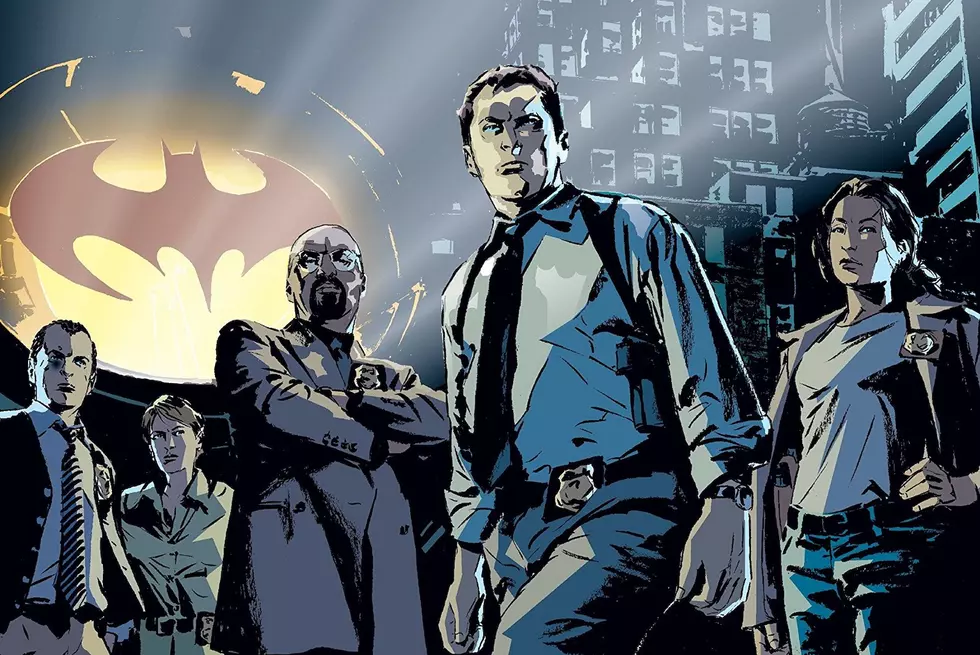
Convicted Terrorist Claims Batman and Comics Inspired Him To Act

American citizen, Massachusetts resident, and now convicted terrorist Tarek Mehanna was sentenced to 17 and a half years in prison yesterday by U.S. District Court Judge George A. O'Toole. In Mehanna's statement to the court during his sentencing, he made several bold declarations about his beliefs, including that he first began to establish the personal values that would later inspire him to support al-Qaeda from reading comics and connecting with characters like Batman.Mehanna was convicted of seven counts in all, three of which related to providing false statements to FBI agents, conspiracy to commit murder in a foreign country (specifically against U.S. forces in Iraq), and finally, conspiracy to provide material to support al-Qaeda.
Lawyers for Mehanna's defense pointed out that Mehanna never actually committed any acts of violence, although he did travel to Yemen in 2004 to allegedly find suitable training to do so, but ultimately failed. Still, under 18 U.S.C. 2339a Mehanna was charged in 2009 with lending "material support to terrorists," which can be classified as "any property, tangible or intangible" that might be helpful to persons attempting to harm others or destroy government property.
According to the original complaint [PDF] filed by the U.S. District Attorney, and Mehanna's subsequent statement during his sentencing, Mehanna believes American forces are invaders who have occupied Middle Eastern territory unjustly, and that it's the right of the people to expel foreign soldiers from their land by any means necessary.
 But, that's not what Mehanna did. He may have tried, but in the end Mehanna wasn't a very good terrorist, in the same way that 19-year-old Mohamed Osman Mohamud probably wouldn't have had the resources to attempt to set off a bomb in Portland, Oregon without assistance from an FBI sting operation, a tactic that law enforcement officers have used several times in recent years to ensnare potential terrorists. The FBI claims Mehanna also conspired to attack an American mall and two government officials (something Mehanna denies), but also noted that the plans were amateur.
But, that's not what Mehanna did. He may have tried, but in the end Mehanna wasn't a very good terrorist, in the same way that 19-year-old Mohamed Osman Mohamud probably wouldn't have had the resources to attempt to set off a bomb in Portland, Oregon without assistance from an FBI sting operation, a tactic that law enforcement officers have used several times in recent years to ensnare potential terrorists. The FBI claims Mehanna also conspired to attack an American mall and two government officials (something Mehanna denies), but also noted that the plans were amateur.
Although lying to the FBI carries some serious consequences, it seems Mehanna was mostly prosecuted for translating into English, and then posting online, videos and other documents from al-Qaeda members abroad that encourage violence against American forces.
Still a relatively young man at the age of 29, Mehanna likely read several of the same comics many of us did during the 1990s, and although he mentions several political figures, books, and activists that he believes would approve of his actions, it's worth noting that he specifically mentions comic books as being the birth of his inspiration to conspire against American forces:
"When I was six, I began putting together a massive collection of comic books. Batman implanted a concept in my mind, introduced me to a paradigm as to how the world is set up: that there are oppressors, there are the oppressed, and there are those who step up to defend the oppressed."
While Mehanna didn't specifically mention which Batman comic inspired him the most, there would be a certain perverse irony if it happened to be Frank Miller's Dark Knight Returns, considering the creator's controversial anti-Islam views. Tongue-in-cheek comments aside, Mehanna's case is worthy of consideration on the grounds of artistic inspiration and also free speech.
Some pundits, like Salon writer Glenn Greenwald, have called Mehanna's case a violation of First Amendment rights guaranteed by the Constitution, and that Mehanna's views of Islam and colonialism should be protected as long as he isn't physically harming someone else. Certainly Mehanna's rhetoric and choice of reading material could be seen by some to be disgusting and even potentially dangerous, but the principle of free speech often requires people to endure ideas and expressions they find offensive; a similar argument was made by detractors against the case that the Comic Book Legal Defense Fund recently fought for a comics fan facing child pornography charges in Canada.
Perhaps some of the charges against Mehanna could be seen as violating free speech, but definitely not all of them. Still, the case does raise questions about how far our society is willing to go in terms of freedom of speech. For example, should it be legal to translate and post online a comic book that shows how to make bombs and then encourages readers to use them? Should it matter who the source material is from or who the intended target is? What if it were a story about characters who performed such actions? Where is the line between fictional inspiration and DIY manual?
Earlier this year, ComicsAlliance facepalmed over a Fox News correspondent who demonized DC Comics and the New 52 relaunch for being damaging to teenagers, so let's all hope Mehanna's comments don't trigger another wave of a million moms, or whomever, to categorize our favorite medium as tiny, two-dimensional terrorist training camps. Once art is released into the world it's open to interpretation of any kind; it can inspire many things, and whether it's dressing-up and making sick kids happy or translating violent calls to arms, it's ultimately the individual who decides how to act upon it.
More From ComicsAlliance








![CBLDF Releases Short Documentary About American Charged With Posessing ‘Obscene’ Manga Images [Video]](http://townsquare.media/site/622/files/2012/03/manga-is-not-a-crime-300x300.jpg?w=980&q=75)
